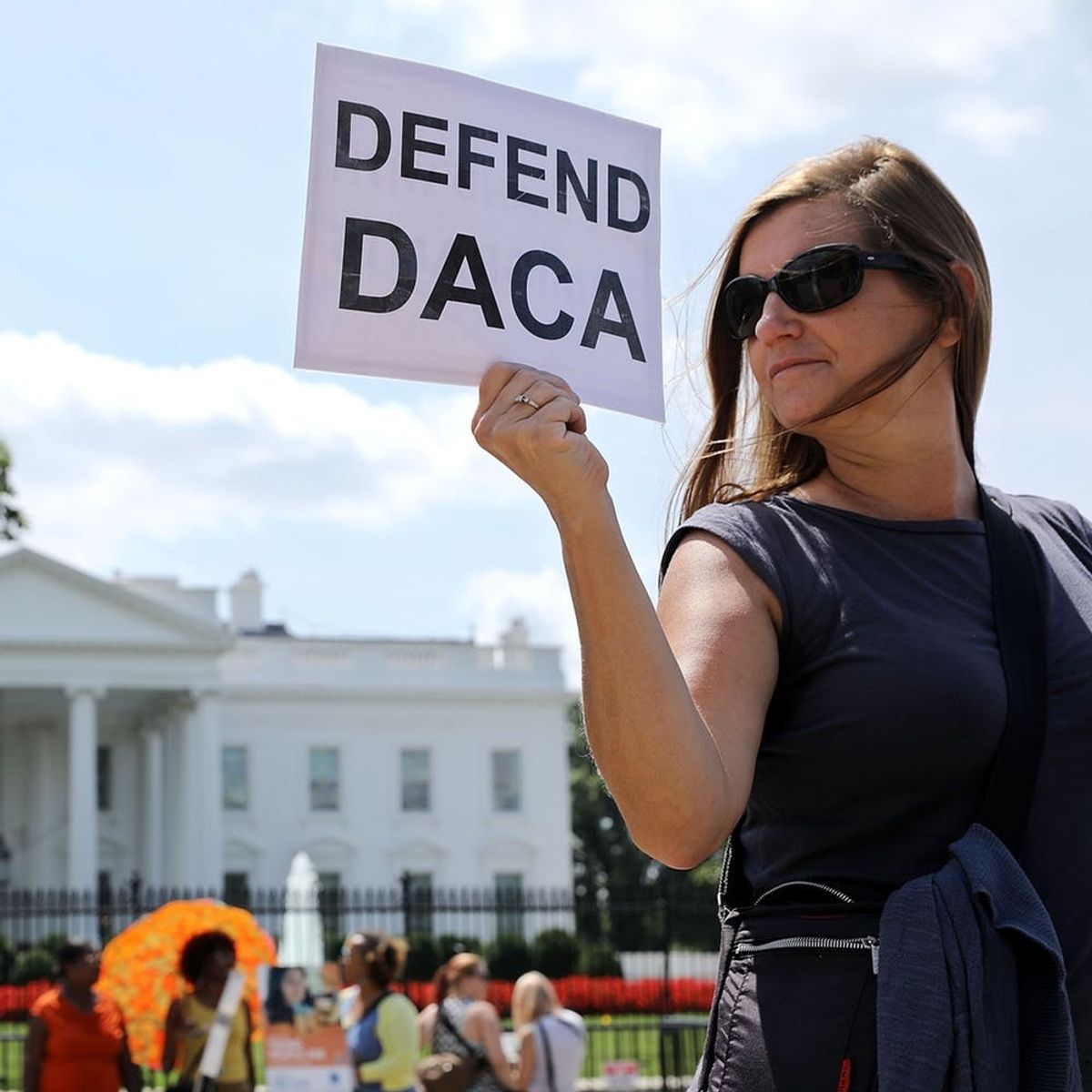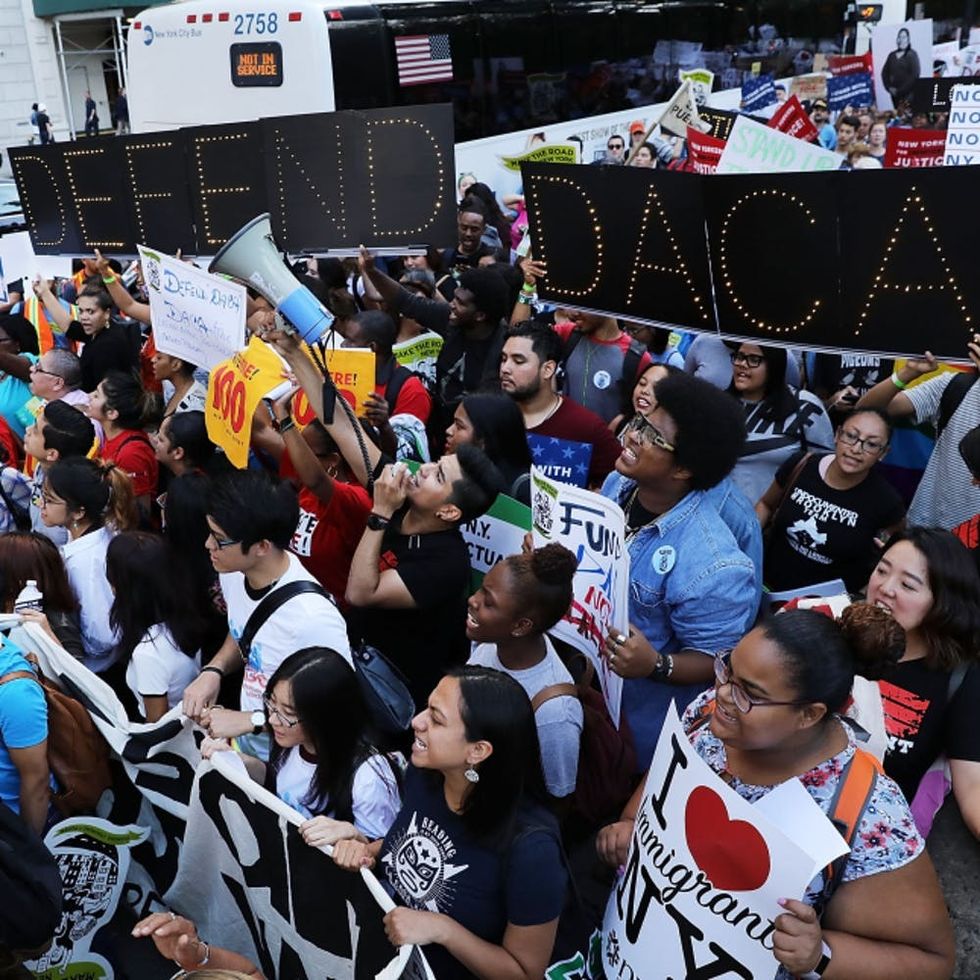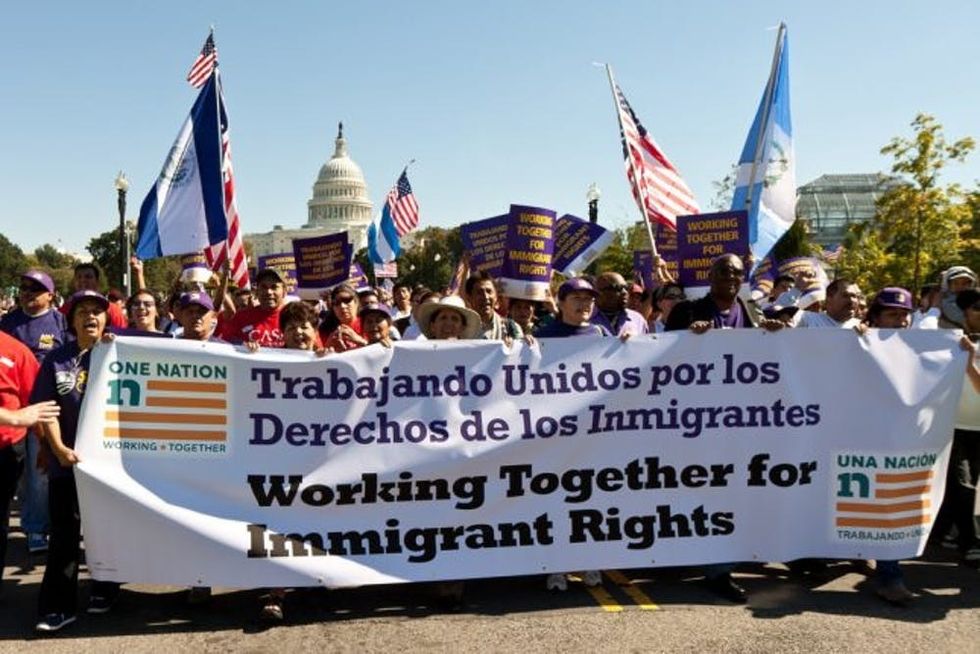It’s pretty heartbreaking.
The Trump Administration Is Ending DACA — Here’s What’s at Stake

After months of elevated concern among immigrant communities and Americans of all stripes, Attorney General Jeff Sessions announced this morning that the DACA program will be coming to an end. The program currently protects nearly 800,000 young people from deportation.
DACA, short for Deferred Action for Childhood Arrivals, was put into place by the Obama administration in 2012. The Trump decision comes on the heels of heightened speculation over whether the administration would repeal DACA in advance of a September 5 deadline to determine the program’s fate. Along the way, activists and public leaders — including Brit + Co CEO Brit Morin — have taken action to stand by DACA.

The aim of DACA has been to protect young people from being deported if they were brought to the US by their families as children, before they were old enough to have any decision-making power over the process. The idea is that young people who did not choose to immigrate to the US, but had that decision made for them by their parents, should be given a shot at a future.
While immigration policy is generally nuanced and complex, there tend to be two main sides of the DACA debate. Those who oppose DACA will typically argue that it isn’t fair for anybody to get a free pass to stay in the US if they didn’t arrive with proper visas. The estimated 64 percent of Americans who support DACA, meanwhile, argue that it’s the ethical duty of the US government to make it easier for young people who have grown up here to stay. There’s also an economic imperative to keep a working-aged population of young immigrants around to contribute to the United States GDP.
Wherever you stand on the issue, it’s worth considering what DACA actually does. Because of DACA, thousands of young people have been able to enroll in public universities and colleges across the country, and have become eligible for scholarships and aid packages to fund their educations. DACA has also allowed thousands of young people to contribute to the economy as tax-paying members of our nation’s workforce; losing them could cost states nearly $460 billion dollars over the next decade.

In the interest of disclosure, I will share that one of my own cousins is directly threatened by the repeal of DACA — it’s an issue that hits close to home. My cousin moved to the US with his parents, my aunt and uncle, as a little boy. Now he’s a young man who has built a life and career in the US. His family and friends are all here. His younger brother, who is a US-born citizen and not at risk of deportation, is here too, and relies heavily on his older brother for care and support.
My cousin’s story is his to tell and not mine, but I feel that it’s important to bring him up to emphasize the vast scope of families across the country who this repeal will affect. I don’t have the face or name of someone who you might associate with undocumented immigration, but my family is at risk of being ripped apart by the repeal of DACA. There are countless others just like me, hiding in plain sight.
But the thing is, the repeal of DACA was never just a threat to the roughly 800,000 young people it directly covered. It threatens their families, their friends, their communities, their employers, and everyone whose paths cross with their own. It threatens our economy and it threatens our decency. In short, the repeal of DACA affects all of us. It’s time to get mad, be strong, and take a stand.
How will you be defending DACA? Tell us @BritandCo!
(Photos via Spencer Platt + Chip Somodevila /Getty)

















